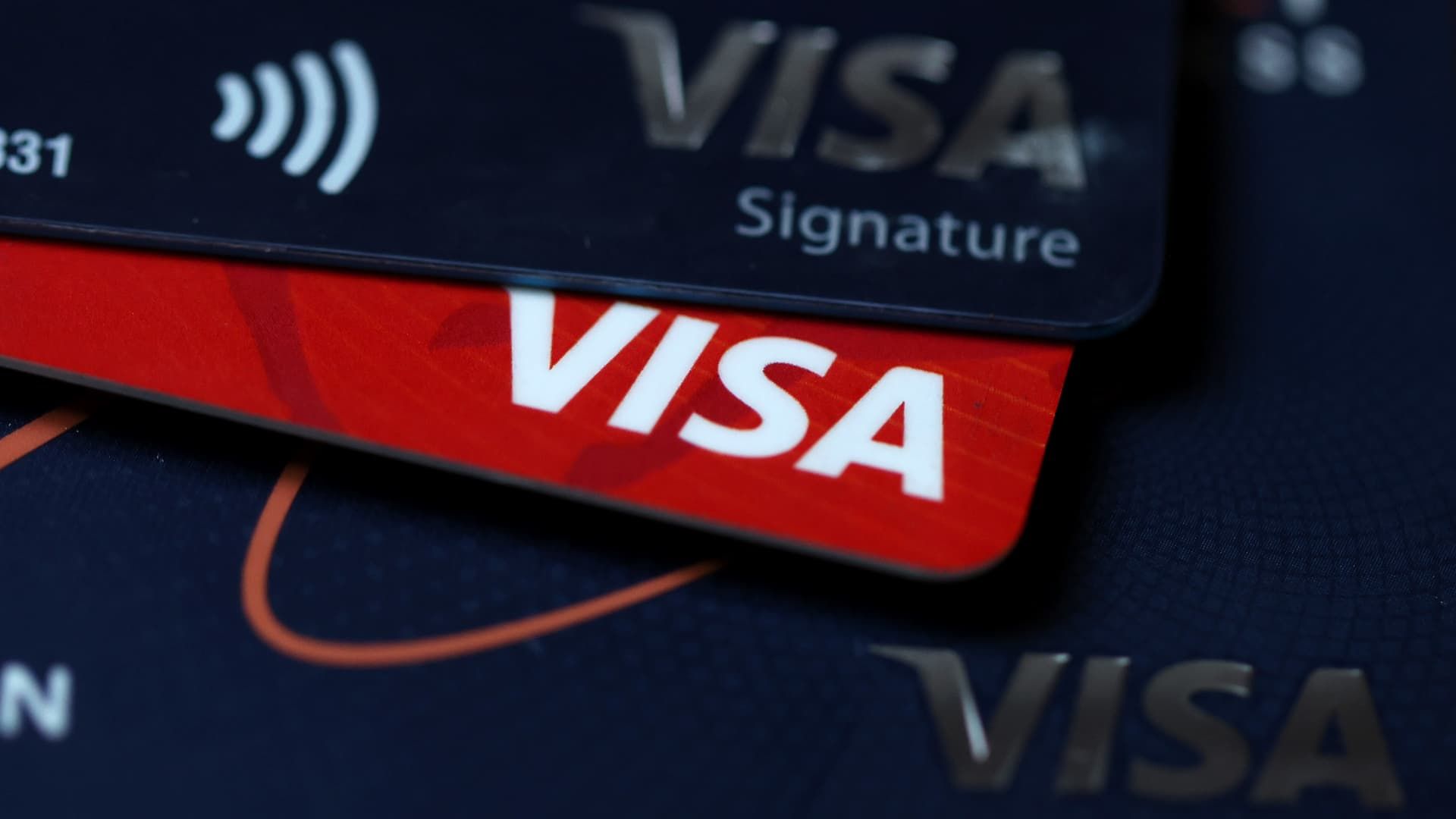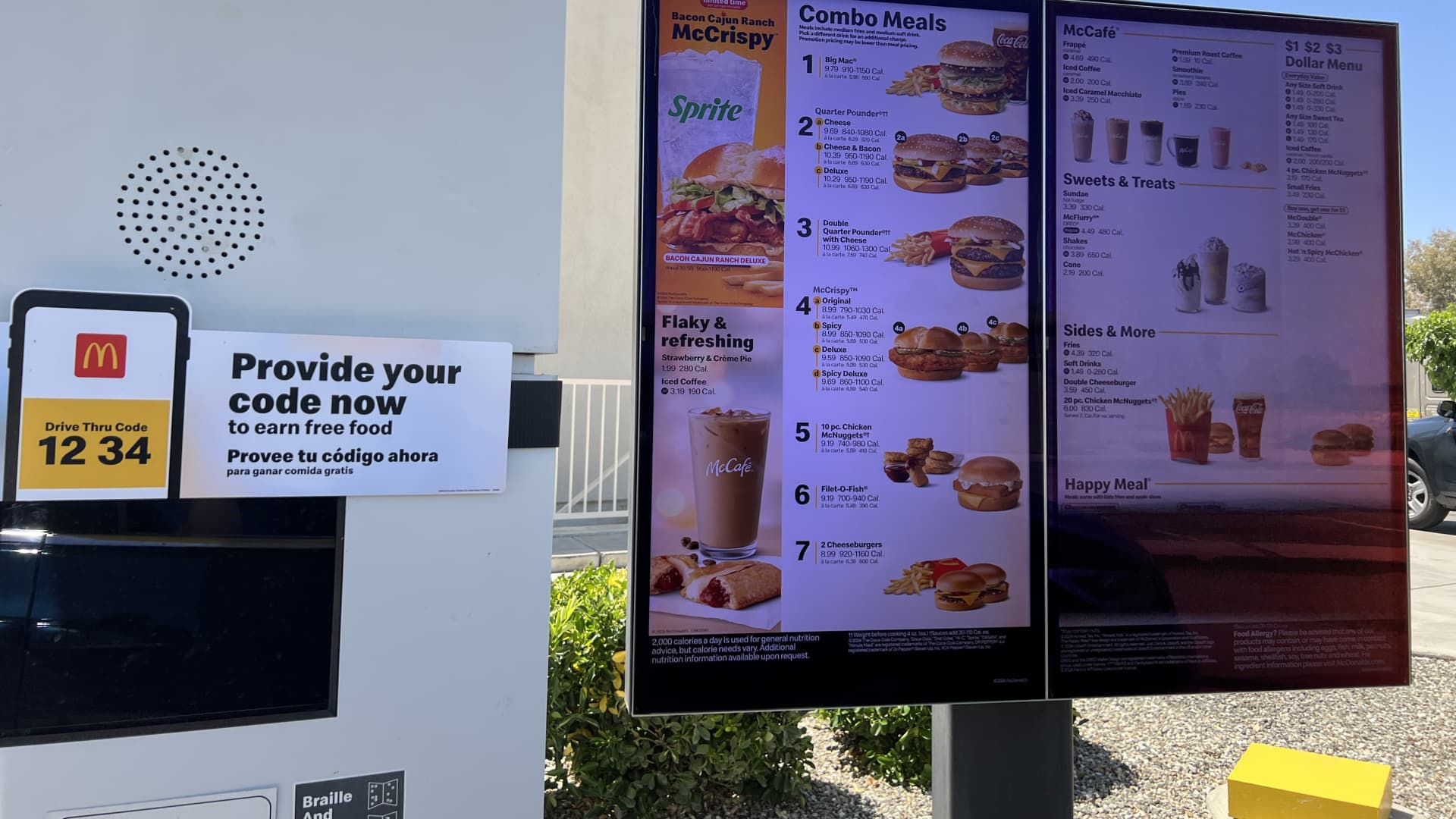Justin Sullivan Images | etty
The US Department of Justice filed a lawsuit on Tuesday Visathe world's largest payments network, saying it was propping up an illegal monopoly on debit payments by imposing “exclusive” deals on partners and stifling startups.
Visa's actions over the years have resulted in American consumers and merchants paying billions of dollars in additional fees, according to the Justice Department, which filed a civil antitrust lawsuit in New York alleging “monopolization” and other illegal conduct.
“We allege that Visa has unlawfully amassed the power to charge fees that far exceed what it could charge in a competitive marketplace,” Attorney General Merrick Garland said in a Justice Department statement.
“Merchants and banks pass those costs on to consumers, either by raising prices or reducing quality or service,” Garland said. “As a result, Visa's illegal conduct affects not just the price of one thing, but the price of almost everything.”
Visa and its smaller rival MasterCard Credit cards have seen tremendous growth over the past two decades, reaching a combined market capitalization of about $1 trillion, as consumers turn to credit and debit cards to make in-store and e-commerce purchases instead of paper money. They are essentially toll collectors that transfer payments between merchants' banks and cardholders.
More than 60% of debit transactions in the U.S. are made through Visa cards, helping the country collect more than $7 billion annually in processing fees, according to the Justice Department complaint.
But the dominance of payment networks has increasingly attracted the attention of regulators and retailers.
In 2020, the Justice Department filed an antitrust lawsuit to block Visa from acquiring fintech company Plaid; the companies initially said they would fight the action but soon abandoned the $5.3 billion deal.
In March, Visa and Mastercard agreed to cap their fees and allow merchants to charge customers for using credit cards, a deal the retailers said saved them $30 billion over half a decade. A federal judge later rejected the deal, saying the chains could afford to pay a “substantially larger” settlement.
““Visa uses its dominance, enormous scale, and central position in the debit ecosystem to impose a web of exclusionary agreements on merchants and banks,” the Justice Department said in its statement. “These agreements penalize Visa customers who direct transactions to a different debit network or alternative payment system.”
This story is developing. Please check back for updates.










